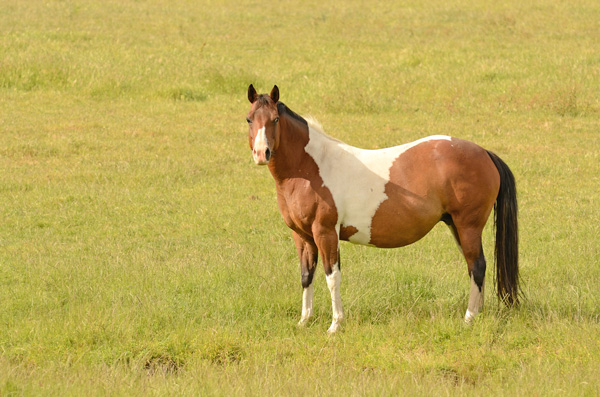
Editor’s Note: I want to encourage all farm and stable owners to learn more about–and support–the following research by Dr. Nielsen. I personally campaigned to bring Dr. Nielsen from Denmark to the University of Kentucky’s Gluck Equine Research Center because the horse industry NEEDS to seriously address the problem of parasite drug resistance, and he is one of the best in the world. Dr. Nielsen a veterinarian, a researcher, and a horse person. He understands our love and concern for our horses. He is asking for our help, and we need to support his research because we care about our horses, and it’s the right thing to do for the industry.
There is legitimate concern about equine parasite drug resistance—meaning many of the deworming drugs we have today are not as effective against the internal parasites we are trying to kill. One researcher is looking at innovative ways to help keep equine internal parasites in check, and he’s inviting the horse industry to help him.
Martin Nielsen, DVM, PhD, DEVPC, DACVM, equine parasitologist, veterinarian and assistant professor at the University of Kentucky’s Gluck Equine Research Center, has launched the first research crowdfunding project at UK and possibly the first such effort in the field of veterinary science.
Crowdfunding is a relatively new term that describes reaching out to the general public, usually through the Internet, to reach a fundraising goal. Success in reaching the goal often depends on many individuals making small donations through a website.
Nielsen’s crowdfunding campaign, called “Let the germs get the worms: Testing a novel probiotic compound for treatment of equine parasites,” is hosted at the website http://equineparasitology.ca.uky.edu/ and has a goal of raising $30,000 before March 10.
You can register on the website to get information on the research, ask questions of Nielsen, and contribute.
Watch these two videos from Nielsen about his research and the problem of anthelmintic resistance, Part 1 and Part 2.
In the following video, you see baby ascarids–larvae of the large roundworm of horses, Parascaris equorum. Nielsen said these parasites infect virtually all foals in the world. The worm can grow as large as 40 cm in length and can cause severe disease in the foals. This parasite is becoming increasingly drug resistant across the world.
Deworming our horses is one of the fundamental health care management tools we have to keep our horses healthy and productive. If we continue as we have been traveling, we are on track to return to the days of pot-bellied, worm-infested, colicky horses that die from internal parasites.
Please support this research by visiting http://equineparasitology.ca.uky.edu/ and making an online contribution, or pledging a contribution. If only 1,500 people give $20 each, the goal will be reached.


